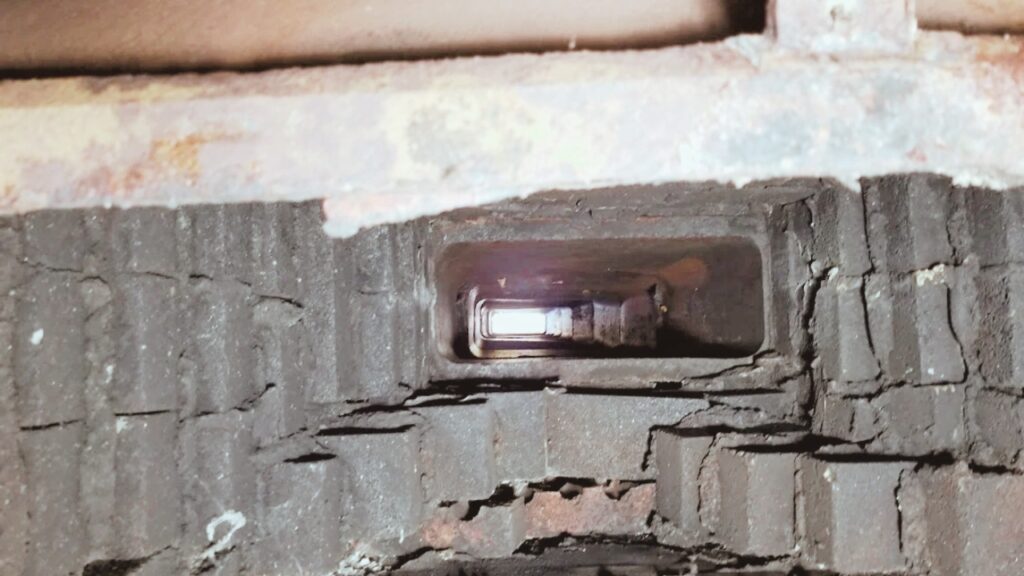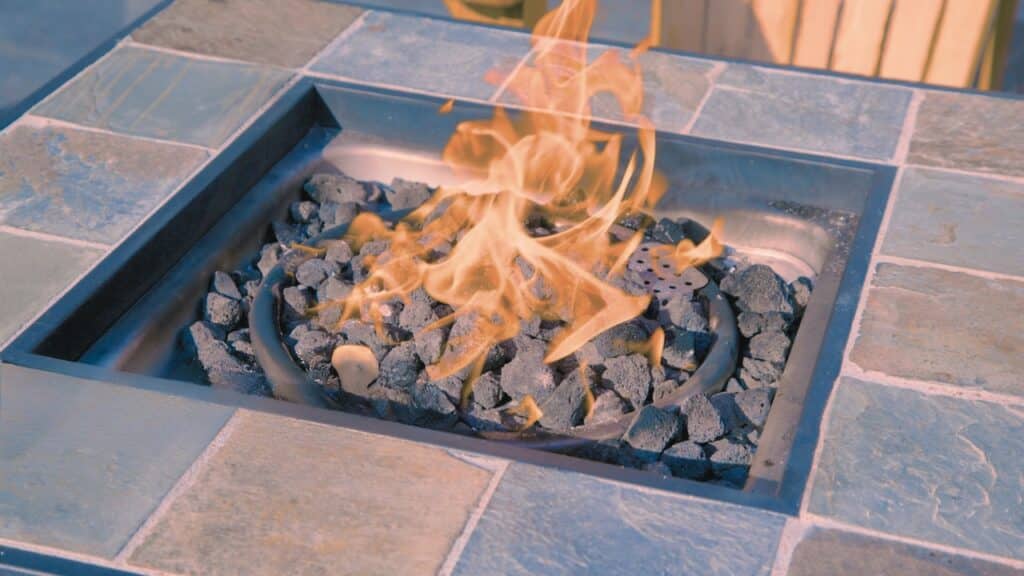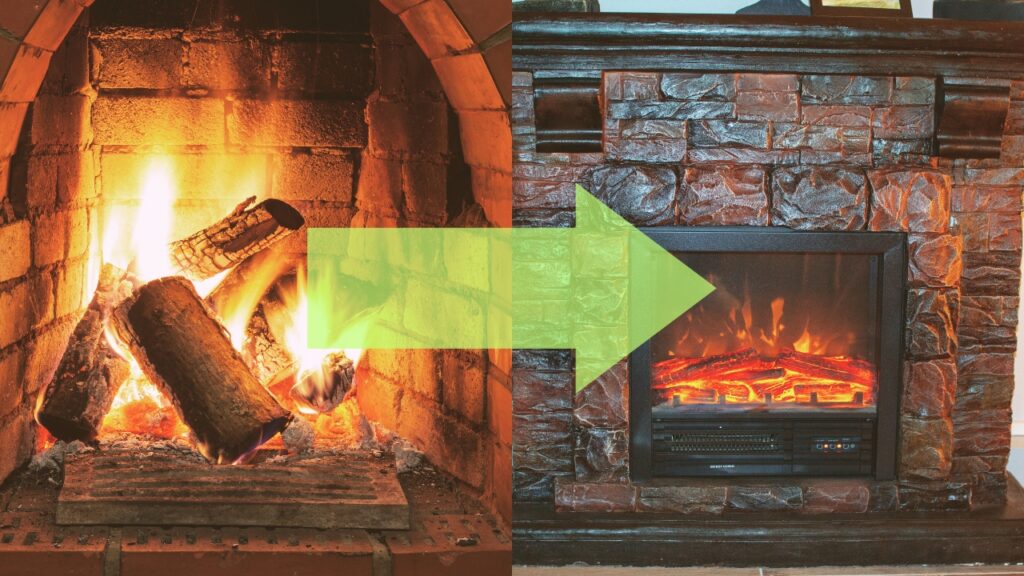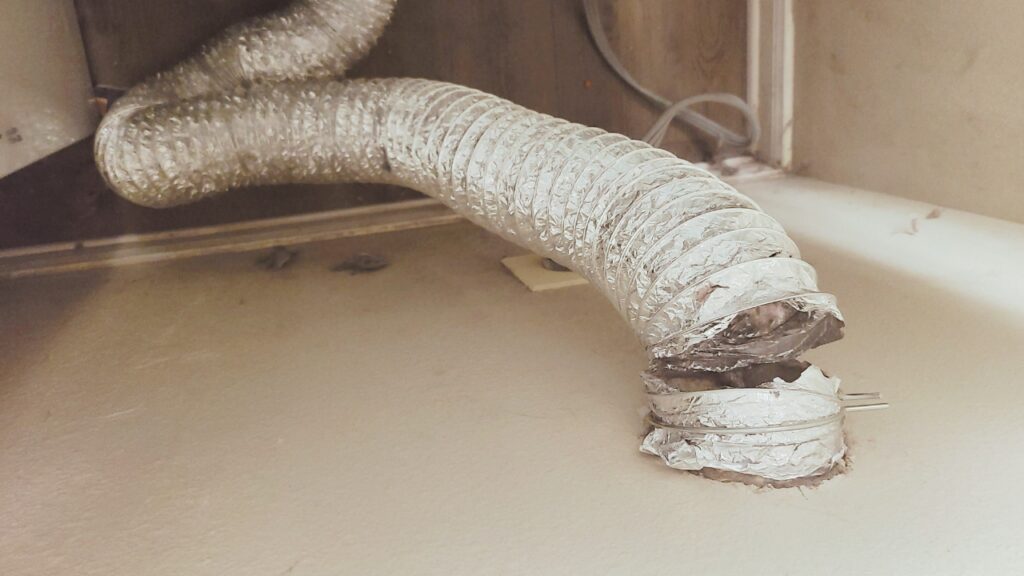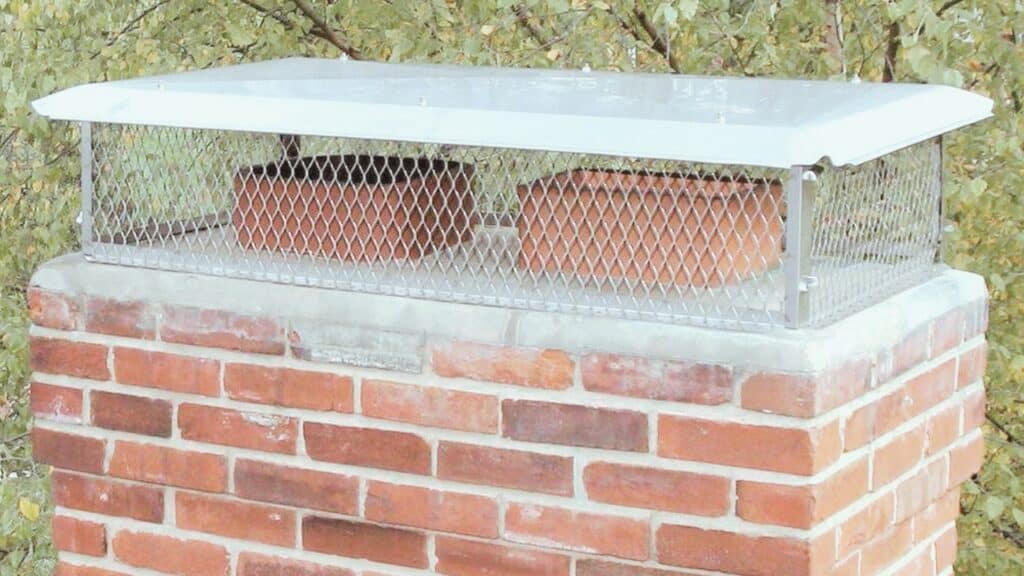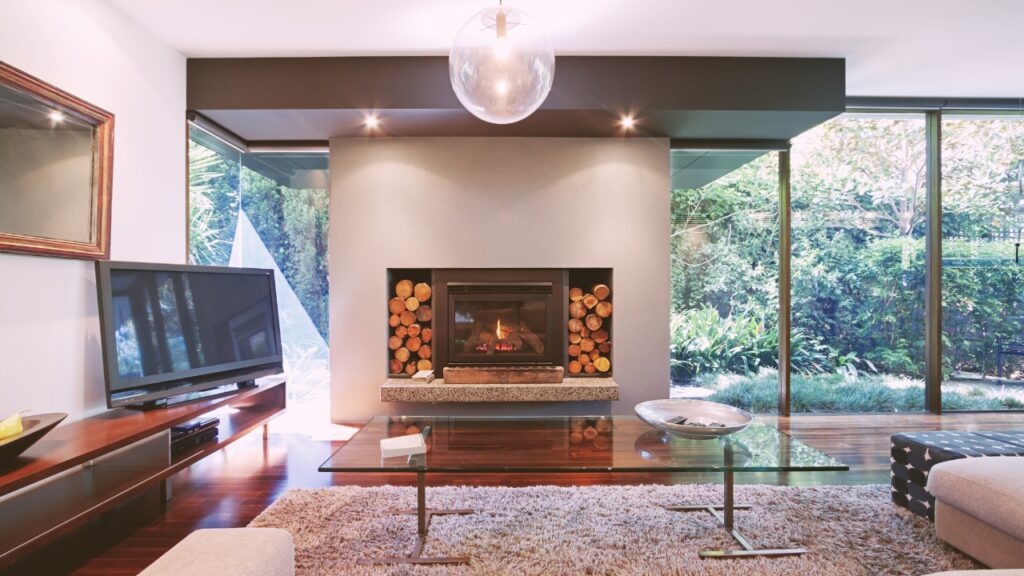Watching the crackling fire while gathered around the hearth of a fireplace on a cool night, adding kindling and firewood as the flames diminish, is a beautiful way to spend an evening. Or perhaps it’s a gas fireplace with glowing embers and logs that look very much like the real thing and offer a lovely experience for your family.
How many years of enjoyment can you get out of your fireplace? A lot, it turns out. The lifespan of a fireplace might surprise you. Typically, the question of what is the lifespan of a fireplace comes to mind when considering a new installation or when planning for home maintenance.
A gas fireplace can run for 15 to 25 years with little maintenance, while a prefabricated wood-burning fireplace’s lifespan can be up to 20 years. Electric fireplaces tend to last 10 to 20 years. With proper care and maintenance, all fireplaces can be kept in good condition for far longer than their average life expectancy.
No matter the type of fireplace you have, the quality of materials used will be integral to how long it lasts. Investing in a high-end gas fireplace might require a higher upfront price, but you can be certain you’ll get your money’s worth with the bonus of beautiful craftsmanship.
Cheaper fireplaces seem like an economically sound choice. But if their components aren’t up to standard, they might require replacement sooner than expected.
What Is the Lifespan of a Fireplace?
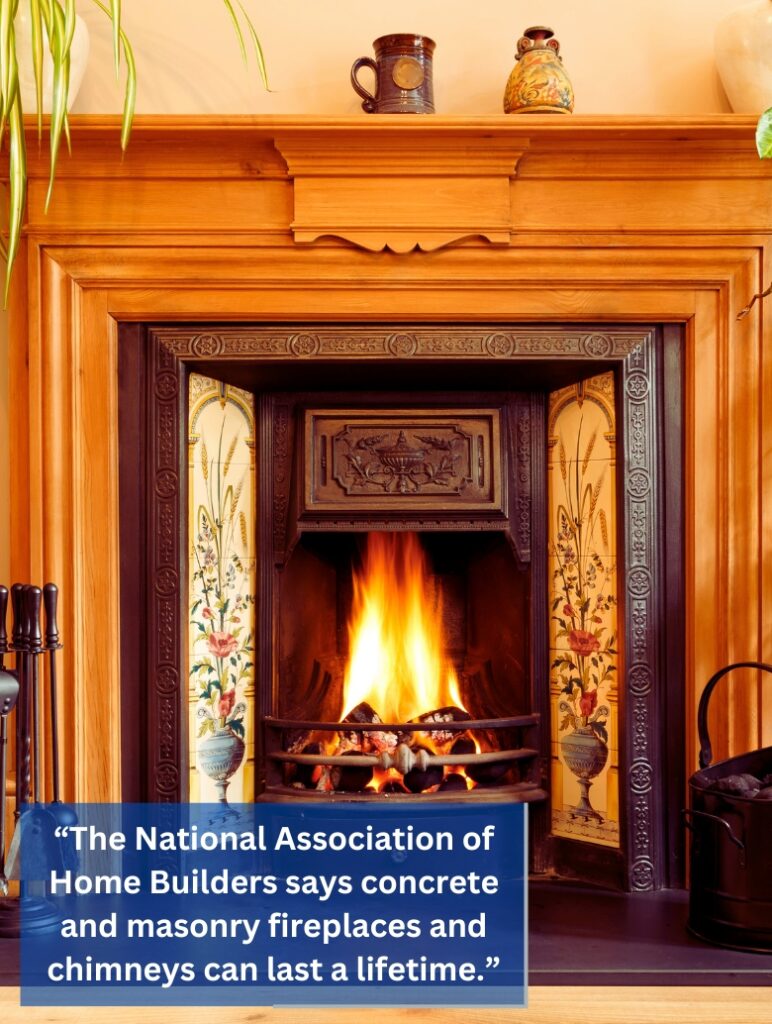
Fireplaces differ in their lifespan, influenced by factors like fireplace type, material, usage frequency, and maintenance. A brief summary:
- Gas Fireplaces: These can last between 15 to 25 years, requiring minimal maintenance. However, if issues arise, timely fireplace repair can ensure they continue to operate efficiently and safely.
- Prefabricated Wood-Burning Fireplaces: Their lifespan can reach up to 20 years.
- Electric Fireplaces: Typically, they last from 10 to 20 years.
Regular care and maintenance can significantly extend the life of all fireplace types beyond their average expectancy.
According to the National Association of Home Builders, concrete and masonry fireplaces and chimneys can last a lifetime, highlighting their durability. However, it’s important to note that traditional wood-burning fireplaces, while long-lasting, won’t last indefinitely. Knowledge of different fireplace lifespans and maintenance strategies is key to maximizing the life of these investments.
| Type | Lifespan |
| Wood-Burning Fireplace | 20 Years |
| Pre-fabricated Fireplace | 10 – 15 Years |
| Gas Fireplace | 15 – 25 Years |
| Electric Fireplace | 10 – 20 Years |
How Long Do Wood Fireplaces Last?
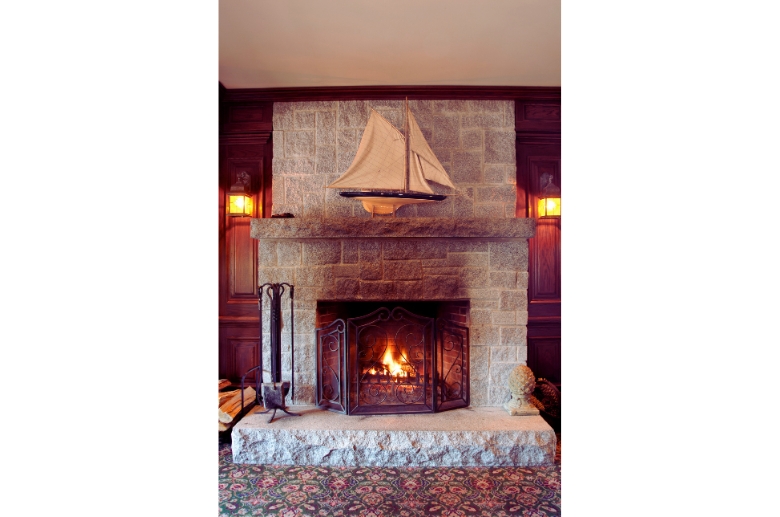
The average lifespan of a concrete or masonry wood-burning fireplace is around 100 years, with routine maintenance and proper care. From cleaning the chimney and fireplace regularly to refilling the firebox with fresh wood, key steps should be taken to ensure your fireplace runs without a hitch.
Additionally, undertaking periodic fireplace restoration can help in maintaining the structural integrity and aesthetic appeal of these traditional heating sources.
Wood-burning fireplaces are great for creating an inviting atmosphere and providing heat but require extra attention.
——
Do You Need to Hire Chimney & Fireplace Expert?
Get free quotes from qualified experts near you. No commitment required!
——
Factors Impacting the Lifespan of a Wood Fireplace
Several external factors can influence the life expectancy of a wood-burning fireplace. These include climate, usage frequency, and quality of materials used during the construction process.
Living in a colder climate where temperatures drop to far below freezing for weeks will take its toll on your fireplace. The frigid temperatures and snow or heavy rain that might enter the chimney are taxing and can cause damage over time.
Frequent use of a wood-burning stove during cold weather can wear down the internal parts faster than if the stove were not used so often.
Although purchasing a higher-quality model may be more expensive, it will ensure that your fireplace will last longer, ultimately saving you money in the long run. Investing in a higher-grade model with durable materials is a smart move regarding fireplaces and their associated parts.
Tips to Maintain a Wood Fireplace
Here are a couple of our top tips to ensure your wood-burning fireplace lasts as long as it should:
- Have the chimney swept regularly. Regularly inspect flue liners for any damage that can impact performance.
- Be mindful of the wood being burned and practice moderation when feeding your fireplace.
- Do not overfill the firebox. Keep a close watch on flames with a glass door or ceramic wall in place.
- Call a professional for any fireplace repairs, as an improper repair may lead to other problems.
How Long Does a Prefab Fireplace Last?
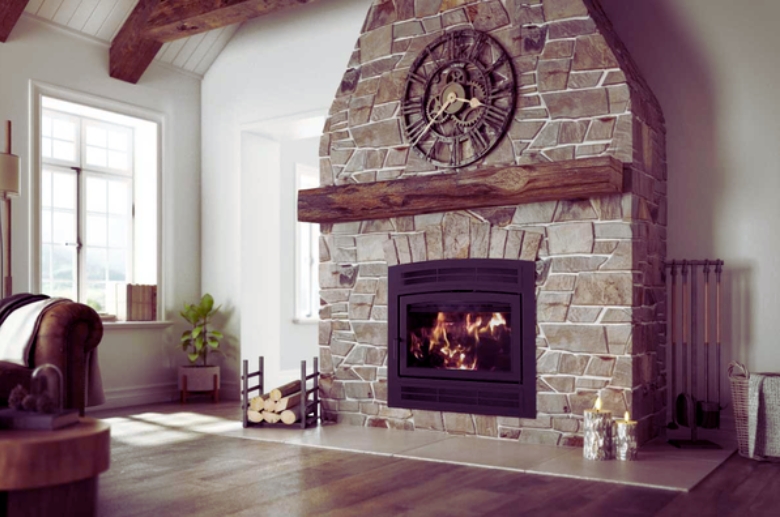
A prefabricated fireplace can last 10 to 15 years on average, but it will depend on the construction materials and parts used in its design. They are more cost-effective than having a masonry fireplace constructed and generally require less maintenance. However, regular inspections should still be performed to prevent problems from developing.
Factors Impacting the Lifespan of a Prefab Fireplace
For a prefab fireplace to last a long time, you must maintain it properly. This includes an annual inspection of the chimney and liner and regular cleaning of any soot.
Pre-made fireplaces without a catalytic converter produce smoke, soot, and ash, which can build up and damage the fireplace.
Rust is a common problem with a prefab fireplace. This occurs due to water leaking into the metal components, mainly around the flue and flashing area. If you notice water or signs of rust, contact a chimney company for assistance and repair to prevent further damage.
Tips to Maintain a Prefab Fireplace
These tips can help you maintain a prefab fireplace:
- Remove ash regularly from the firebox to allow adequate airflow and increase efficiency.
- Have an annual chimney sweep to remove soot and creosote accumulating in the flue pipes.
- Call a professional if you find nests on the roof, chimney, or among siding materials.
- Keep fire size moderate to avoid potential damage to the unit from extreme heat.
- Install according to instructions and manufacturer’s advice for components/parts.
- Follow maintenance information to ensure your prefab fireplace is running efficiently.
How Long Does a Gas Fireplace Last?
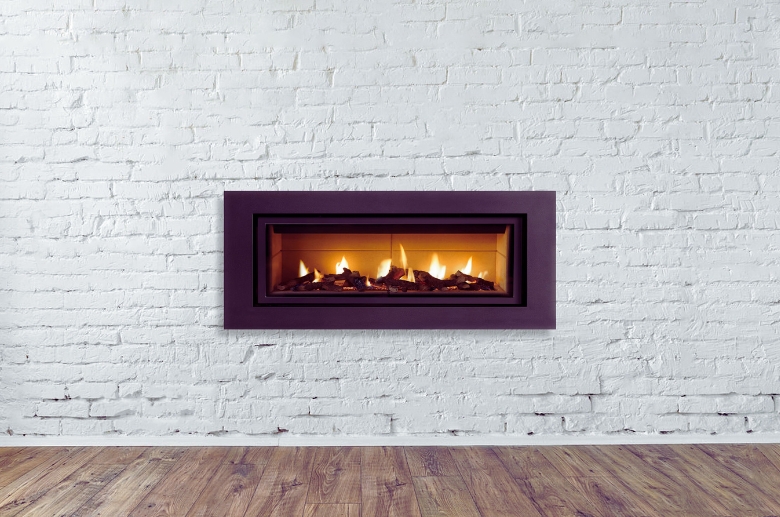
On average, gas fireplaces have a life expectancy of 15 to 25 years. Most standard gas units are fairly efficient and require minimal maintenance year-round. A common cause of premature repairs or replacements for gas fireplaces is selecting the wrong fuel for the unit.
——
Do You Need to Hire Chimney & Fireplace Expert?
Get free quotes from qualified experts near you. No commitment required!
——
Factors Impacting the Lifespan of a Gas Fireplace
The choice of vented or ventless gas fireplaces depends upon your lifestyle. Most require minimal maintenance, but vented models require regular inspections and cleaning of the lining. In contrast, ventless units do not need to be cleaned as often, but special care should be taken to check for carbon monoxide leakage and other gas fireplace leak symptoms.
Incorrect installation is a common cause of gas fireplace complications. Ensure any installation is done by a certified professional who follows the manufacturer’s instructions for assessing the area and making an appropriate seal to prevent gas from leaking out of your unit.
Tips to Maintain a Gas Fireplace
Here are some great tips to help homeowners maintain their gas fireplace:
- Have your unit serviced yearly to ensure it works properly without any safety issues. Requirements for maintenance can vary based on the type of fireplace, so be sure to consult a professional and follow manufacturer guidelines.
- Ensure the pilot light is off when the fireplace isn’t in use.
- Clean louvers regularly to avoid dust accumulating and affecting performance.
- Clean the glass front with fireplace cleaner to avoid chemical buildup.
- Inspect the unit’s exterior for any signs of damage or wear and tear.
How Long Do Electric Fireplaces Last?
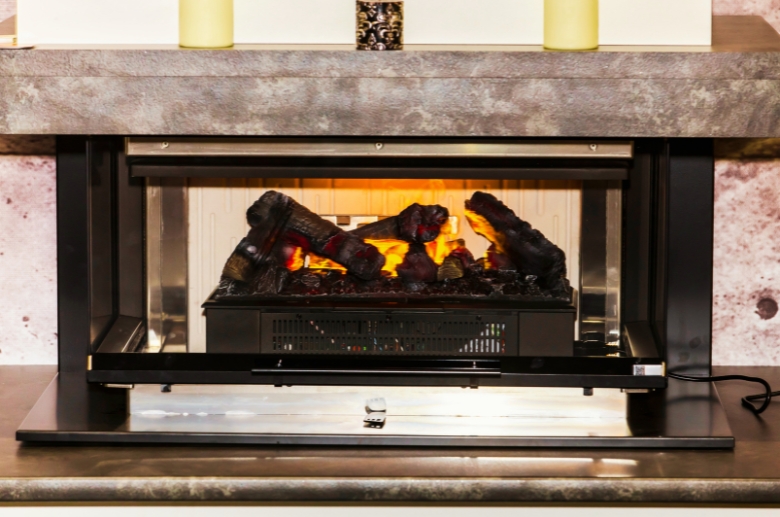
Although electric fireplaces require minimal maintenance, they still have an average lifespan of 10 to 20 years. The appliance can serve you longer than expected life expectancy with proper care and usage. Electric fireplaces come in various styles and sizes, influencing the lifespan, depending on how you use them.
Factors Impacting the Lifespan of an Electric Fireplace
Like all other fireplaces, electric units require regular maintenance. This includes ensuring that the heating elements are operating correctly and not becoming overheated. Dust buildup in the airways should also be monitored regularly, as this can cause operations issues and even risk of fire.
You should also be aware of the environment the electric fireplace is in, as this directly affects the heat output and lifespan. Try to keep the fireplace away from drafts and shield it from any rain coming in nearby windows, as this can result in a shorter lifespan.
Tips to Maintain an Electric Fireplace
Here are some great ways to keep your electric fireplace in good shape:
- Replace light bulbs every 2 years for optimum performance.
- Inspect the exterior often to ensure all parts are in working order.
- Clean the fan regularly with a brush or vacuum to ensure dust buildup isn’t affecting performance.
- Make sure that insulation is properly in place and airtight to prevent drafts from entering the unit.
- Always use a manufacturer-approved surge protector when connecting an electric fireplace.
Conclusion
So, there you have it: the lifespans of some of the most popular fireplace types. Fireplaces function differently and require specific maintenance techniques depending on the type of fireplace.
Regular care can help keep your fireplace running safely and efficiently for many years. A fireplace is an investment; Selecting quality materials during construction will help ensure your beloved appliance lasts longer.
When investing in one of these fireplaces, it pays to think about which type is best for you. It’s also important to understand the factors associated with each type of fireplace, as this will help extend its life span and keep your family comfortable. Remember that a well-maintained fireplace can last far beyond its average life expectancy with the right care.
Don’t know which one you need? We can help you connect with professionals in your area to discuss the best solution for your needs.

